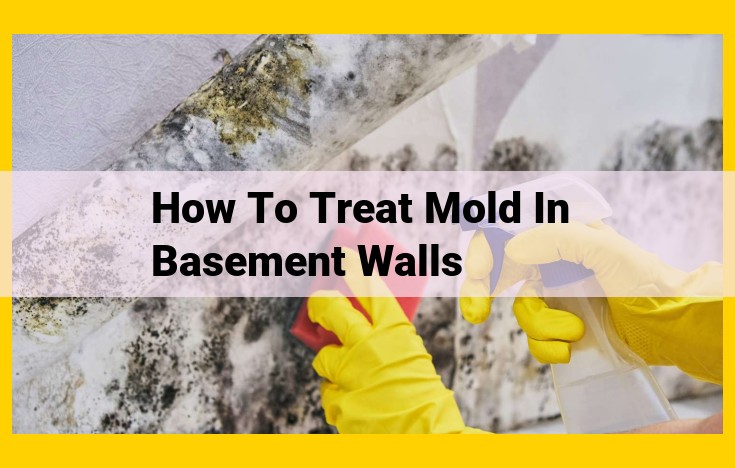To treat mold on basement walls, identify the source of moisture and resolve it. Remove affected materials, clean surfaces with bleach solution, and apply mold-killing products. Professionals involved include basement waterproofing contractors, flood and water damage restoration companies, and mold remediation specialists, who can provide expertise and ensure proper treatment and prevention of mold growth.
Contractors Involved in Water Damage Mitigation
Water damage in your home can be an overwhelming and stressful experience. Understanding the various professionals involved in water damage mitigation can help you navigate this challenging situation effectively. Here’s a breakdown of the key contractors who can help you restore your property and ensure your health and safety.
Basement Waterproofing Contractors
As their name suggests, basement waterproofing contractors specialize in preventing and repairing water leaks and seepage in basements. They install systems such as sump pumps, drain tiles, and vapor barriers to keep your basement dry and free from moisture-related problems. Their expertise is crucial for addressing water damage caused by flooding, heavy rains, or foundation issues.
Flood and Water Damage Restoration Companies
These companies provide comprehensive water damage restoration services to help you recover from unexpected water-related emergencies. They use advanced equipment and techniques to extract water, dry out your property, and disinfect affected areas. They also work closely with insurance companies to ensure a smooth claims process.
Mold Remediation Specialists
Mold can pose significant health hazards if it develops after water damage. Mold remediation specialists are trained to identify, assess, and remove mold. They use specialized equipment and techniques to prevent the spread of mold spores and ensure a healthy indoor environment. Their expertise is particularly valuable in cases of prolonged water exposure or flooding.
By partnering with these skilled professionals, you can effectively address water damage, protect your property, and ensure the well-being of your family.
Professionals with Expertise in Water Damage Management
Water damage can be a devastating event, but it doesn’t have to be a disaster. With the help of the right professionals, you can get your home or business back to normal in no time.
Architects
Architects can help you design and build a home or business that is resistant to water damage. They can also help you repair or remodel a damaged property.
Engineers
Engineers can help you design and build drainage systems, waterproofing systems, and other structures that can help to prevent or mitigate water damage.
Contractors
Contractors can help you repair or remodel a water-damaged property. They can also help you install new drainage systems, waterproofing systems, and other structures to prevent future damage.
Radon and Mold Testers
Radon and mold testers can help you determine if your home or business has been affected by these contaminants. They can also recommend ways to mitigate the effects of these contaminants.
Air Quality Consultants
Air quality consultants can help you determine if your home or business has been affected by poor air quality. They can also recommend ways to improve the air quality in your home or business.
When choosing a professional to help you with water damage mitigation, it is important to consider their experience and qualifications. You should also make sure that they are licensed and insured.
By working with the right professionals, you can get your home or business back to normal after a water damage event.
Regulatory Bodies Governing Water Damage Mitigation
When it comes to water damage mitigation, adhering to proper regulations is crucial to ensure the safety and effectiveness of restoration efforts. Three key regulatory bodies play a significant role in overseeing water damage mitigation practices:
-
Environmental Protection Agency (EPA): The EPA establishes and enforces environmental regulations to protect human health and the environment. In water damage mitigation, the EPA focuses on preventing and controlling the spread of hazardous substances, such as mold and bacteria, which can pose health risks.
-
Occupational Safety and Health Administration (OSHA): OSHA’s primary mission is to ensure the safety and health of workers. In water damage mitigation, OSHA sets and enforces standards to protect workers from potential hazards, including exposure to electricity, chemicals, and biological contaminants.
-
Local Building Codes Enforcement Offices: Local building codes play a vital role in regulating water damage mitigation practices. These codes ensure that buildings meet minimum standards for safety, structural integrity, and habitability. By adhering to local building codes, water damage mitigation contractors can help prevent further damage to the property and protect occupants’ health.
By understanding and following the regulations set forth by these agencies, water damage mitigation professionals can ensure that their services are performed in a manner that is both safe and effective. This ultimately helps protect the health of occupants and the integrity of the property after a water damage event.
